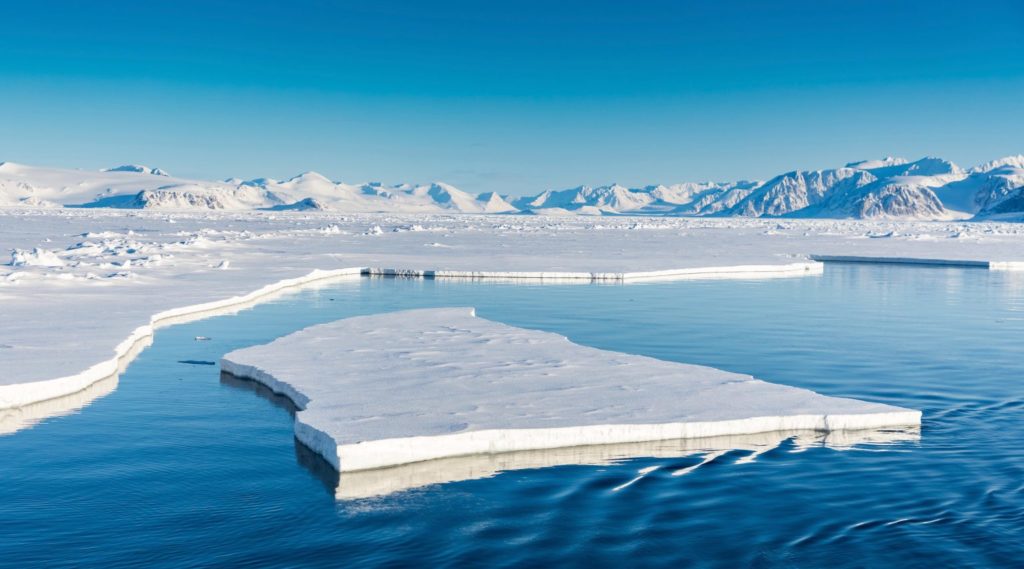Opinion: Love Justice And Climate Change. Feedback Loops: Greta Thunberg Asks Us To “Educate Ourselves”

Arctic Summer Landscape in Svalbard” (Norway. Photo: Risto Raunio

First, two items of good news. With regard to racism, the recent COVID relief bill enacted by President Biden and the Democrats includes roughly $5 billion in relief for farmers of color. The money is described as the most significant legislation for Black farmers since the Civil Rights Act. Persistent racism in government programs and banks has resulted in the loss of 90% of the farmland owned by Black people in 1910. The new legislation will provide funds for debt relief and other measures to assist in the retention and acquisition of farmland by Black farmers.
More Good News
According to an article from Yale Climate Connections, the climate actions that the U.S. must take to meet the Paris climate goals will be costly, but by 2030 will result in benefits 2.5 times greater than the costs. The benefits by 2050 will be 5 times greater than the costs. These figures do not even include the huge benefits resulting from reduced climate disasters and improved public health from cleaner air. An earlier Drawdown report found similar benefits worldwide.
Greta Thunberg
On a more challenging note, you may, or may not, remember that when Greta Thunberg addressed world leaders at the UN Climate Action Summit in 2019 she mentioned “feedback loops” as something most people were not taking into account. In January of this year, she and the Dali Lama had a public conversation online with some leading scientists to promote the launch of a series of five new short videos, “Climate Emergency: Feedback Loops.” These were created by a documentary film company collaborating with top-flight scientists, and are narrated by Richard Gere.
Thunberg said, “If I could ask one thing of you, it would be to educate yourself…spread that knowledge, spread the awareness to others…. Most people I know haven’t even heard of feedback loops or tipping points, chain reactions, and so on. But they are so crucial to understanding how the world works.”
Following Greta’s lead, I recommend this video series to you and offer some key perspectives from it.
Greenhouse gas emissions from our burning fossil fuels for many, many decades have caused the planet to warm and created a climate crisis. The rise in global temperatures is kicking off many feedback loops with dangerous potentials to make the situation much worse. A feedback loop occurs when one process sets off another process, which then intensifies the first process, which then further intensifies the second process, and so on.
Arctic Sea Ice
For example, global warming is causing Arctic sea ice and snow to melt at an alarming rate. White ice and snow in the Arctic reflect the sun’s radiation back into space, helping to cool the Earth. When Arctic ice melts, it exposes the dark sea, which absorbs more of the sun’s radiation. Absorbing that radiation further raises the temperature of the earth, increasing global warming.
It’s a loop because it continues going around — increased warming increases the melting of Arctic ice which increases the absorption of the sun’s radiation, which increases warming, and so on and on. The volume of Arctic ice has already shrunk 75% in the past 40 years, and scientists predict that the Arctic Ocean will be completely ice-free during the summer months by the end of the century.
Forests
Forests play a major role in cooling the earth by removing heat-trapping carbon dioxide from the atmosphere. The world’s forests are responsible for removing roughly a quarter of all human carbon emissions from the atmosphere. Now that percentage is falling as forests succumb to the effects of a harmful feedback loop. As the earth warms the warmer, drier climate is making trees more vulnerable to disease, insects and forest fires.
As trees die they release large quantities of carbon dioxide into the atmosphere. When they burn–whether in wildfires or as a result of humans clearing forested land–they release that CO2 very rapidly. As trees die they also no longer play their role of capturing and removing carbon dioxide from the atmosphere. Both of these lead to greater global warming, and the greater warming leads further loss of trees in a deadly feedback loop.
Scientists say that human activity can worsen this loop, or we can reverse it with good interventions. Right now humans are making this destructive feedback loop worse not only by continuing to burn fossil fuels, but also through deforestation. Slash and burn land clearing in the Amazon and cutting trees for wood pellets in the Southeast U.S., are two prime examples. Currently 17% of global carbon emissions can be attributed to logging and burning of wood. If we want to reverse this dangerous feedback loop, we must protect and expand forests everywhere, preserve natural habitats of all kinds, and adopt agricultural practices that store carbon, thus allowing trees and plants to play a bigger role in removing carbon dioxide from the atmosphere and cooling the earth.
Permafrost
A third dangerous feedback loop is occurring with the permafrost. As the earth warms, permafrost, the icy frozen ground that covers one quarter of the Northern Hemisphere, is beginning to thaw, releasing previously frozen carbon stored in plant and animal remains. The methane and carbon dioxide emitted amplify global warming, which in turn leads to greater thawing, greater emissions, and so on, and on. The permafrost contains twice as much carbon as is currently in the atmosphere, so the potential for disaster from this feedback loop alone is great.
An Energized Public–Reversing The Feedback Loops
Everything that increases global warming will intensify these dangerous feedback loops. Everything that reduces emissions, sequesters carbon, and slows global warming will slow, and potentially reverse, these feedback loops. As the “Introduction” video explains, “We have the technology and the knowledge to solve the problem–to stop and reverse the feedback loops, but we need leaders who understand the urgency of getting it done and an energized public to advocate for change.”
Let’s be that energized public and let’s enlarge the size of that public by following Greta Thunberg’s advice to educate ourselves and spread that knowledge. One good first step is to watch one or more of the videos yourself, and then persuade some of your friends, relatives, and acquaintances to see them as well.
Russ Vernon-Jones was the Principal of Fort River Elementary School from 1990 to 2008. He is a co-facilitator of the Coming Together Anti-Racism Project in the Amherst area. He chairs the Racism, White Supremacy, and Climate Justice working group of Climate Action Now of Western Mass., and blogs regularly on climate justice at www.RussVernonJones.org.
